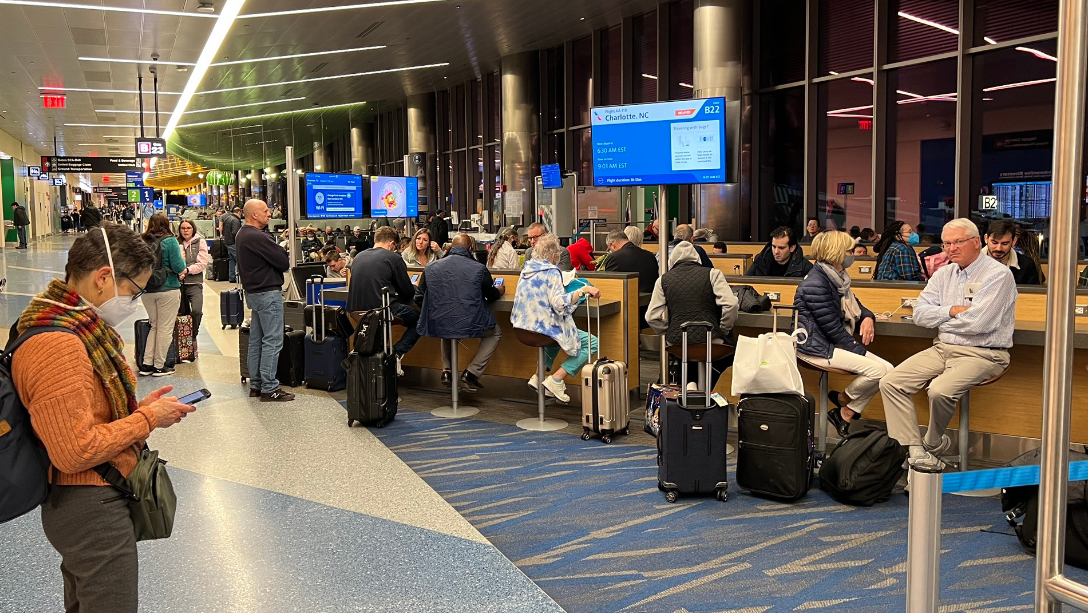What to Know
- The Department of Public Utilities ordered Columbia to review its policies and procedures, but never levied any fines against the utility.
- In the weeks before the explosions, there were just two state inspectors checking utilities’ work in the field, with another in the office.
- Federal regulators recommend 10 inspectors total and warned the DPU that if it didn’t staff up, public safety could suffer.
Matt Hubeny was standing on a corner on Worthington Street in Springfield six years ago, chatting with a photographer, when the strip club suddenly exploded.
“It shook everything,” he said.
Scores Gentleman’s Club was destroyed after a Columbia Gas technician accidentally punctured a natural gas service line leading into the club on Nov. 23, 2012. Gas filled the building, which was evacuated. But it was not vented in time.
“You see it in the movies, but you’re trying to figure out what just happened here,” said Hubeny, a manager at the club.
Eighteen people were hurt, and the neighborhood is still scarred from the blast.
Investigators found Columbia Gas at fault, pointing to the technician failing to properly check the line before piercing it.
Local
In-depth news coverage of the Greater Boston Area.
The state Department of Public Utilities ordered Columbia to review its policies and procedures, but never levied any fines against the utility.
To Hubeny and some others, the Springfield blast, the explosions that rocked the Merrimack Valley last month, and others suggest a pattern of oversight from the state agency in charge of ensuring the safety of the state’s 22,000 miles of natural gas pipelines that seems to allow utilities to police themselves.
Hubeny hopes there will be more accountability for the people in the Merrimack Valley who were displaced by the fires.
“Columbia Gas has very serious things to answer for here, but so does the state of Massachusetts,” said state Sen. Michael Barrett, D-Lexington, a chairman of the Legislature’s Joint Committee on Telecommunications, Utilities and Energy.
He is skeptical of the state’s move last week to ban Columbia and National Grid from doing all but emergency and compliance work.
“We’re deflecting criticism from ourselves,” Barrett said. “The state agencies involved here didn’t do their job. The DPU was never staffed up to adequately oversee Columbia Gas’s behavior.”
In the weeks before the explosions, there were just two state inspectors checking utilities’ work in the field, with another in the office.
Federal regulators recommend 10 inspectors total and warned the DPU that if it didn’t staff up, public safety could suffer.
But how long was the state short staffed? How many inspectors were assigned to Columbia Gas before the explosions? Did the inspectors miss deadlines on any of their inspections?
The NBC10 Boston Investigators put those questions to the DPU and the Executive Office of Energy and Environmental Affairs. But they have refused to answer them.
The state, which still received very high marks on a federal audit released just days before the explosions in Lawrence, Andover and North Andover, did insist oversight was never compromised.
“Really? Two human beings? What sort of inspections do you get out of two people covering 22,000 miles?” Barrett said.
He criticized the state’s oversight structure, describing it as a sort of fox-guarding-the-henhouse situation.
“We trust the industry to police itself and avoid doing a job ourselves. That kind of arrangement has to stop,” he said.
When asked whether he was satisfied with the level of state oversight before the blasts, Gov. Charlie Baker on Thursday pointed to an increase in inspections DPU conducted last year.
“We did more inspections in 2017 than at any time in the past five or six years,” he said. “And obviously we are cooperating with the NTSB to make sure everybody knows and understands exactly what happened.”
In the month since the explosions, the NBC10 Boston Investigators have pored over reports and submitted public records requests.
NBC10 Boston also repeatedly asked to speak directly to DPU leaders, wanting to know for how long the state had just two field inspectors in service.
But a DPU spokeswoman claimed disclosing that information somehow would jeopardize employee privacy.
DPU also refused to reveal how many inspectors were assigned to Columbia Gas or the Merrimack Valley, and whether they missed any federal safety deadlines.
But DPU did tell us, while not admitting any shortcomings, that it is looking to boost its inspection staff by more than 60 percent, and hire an independent evaluator to review their system and policies, and make adjustments if necessary.
But Barrett says that review should have been done two years ago when a new law ordered gas companies to replace thousands of miles of aging pipeline by 2020—work Columbia Gas was doing in Lawrence, sparking the tragedy.
“State government blew it,” Barrett said. “In the interest of understaffing and saving a buck, we exposed people to harm and failed to do our job.”
Congress will hold an oversight hearing on the Merrimack Valley explosions next month, and Barrett said a state hearing should come soon after.



